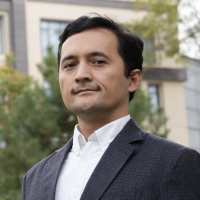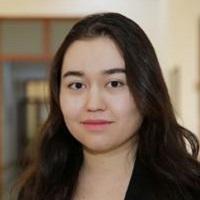MSc in PUBLIC HEALTH SCIENCE
COURSE OVERVIEW
54,439,200 UZS
per course
75,870,000 UZS
per course
1 year - full time
2 years - part time
Classes start at 6:30 PM
Course description
The Master of Science (MSc) in Public Health Science course is especially designed to help you develop skills so that you can contribute to the improvement of global health and well-being of populations and to solve health-related problems nationally and globally. If you are a health professional, the MSc Public Health Science course will provide you with intensive training in public health, health economics and finance, epidemiology, international ethics, research methods, statistics, behavioural and social sciences. The course will enable you to conduct research in the fields of public health, medicine as well as life and social sciences. It is offered on a one-year full-time or two-year part-time basis.
How you will study
Your study activities will consist of:
- Scheduled contact/activity time (lectures, seminars, tutorials, supervisions and other similar activities);
- Structured independent study, such as preparing for scheduled learning; and
- A dissertation (12,000 words).
The course is a mix of timetabled activity and students’ independent learning and research study. “Scheduled Contact/Activity Time” (i.e. “Contact Hours”) involves interaction with, or supervision by teaching and associated staff and the activities provided for students. This may be performed face-to-face or mediated through other channels such as the Intranet. Alongside the scheduled activities, students’ independent study is very important. It is likely to include background reading and research, preparation for seminars or tutorials, follow-up work, wider practice, completion of assignments, revision and others.
All classes both for full-time (one year) and part-time (two years) students are conducted in the evenings, starting at 18:30. Full time students attend classes five days a week, while part students have classes two or three days a week.
Course structure
The course consists of nine core modules and its structure is validated by the University of Westminster (UK) every three years. This may change, if necessary, in order to adapt to feedback received from a variety of sources.
- Introduction to Public Health
- Foundations of Epidemiology
- Health Promotion and Behaviour Change Communication
- Research Methods in Public Health
- Statistics in Public Health
- Public Health and Nutrition
- Health Economics and Systems
- Financing and Managing Healthcare
- Dissertation in Public Health Science
WHY STUDY THIS COURSE?
ENTRY REQUIREMENTS
Applicants should normally hold an Undergraduate degree (or equivalent) from a recognised higher education institution with a minimum of a second lower class honours (2:2 or equivalent). Applicants without a formal higher education qualification or a formal qualification that is not at an equivalent academic standard, may be considered if the following conditions apply:
- They are or have been in employment where their role is in the area of the course and involves a high level of analysis and critical thinking.
Applicants must have:
Had their first or second degree (or equivalent) taught and assessed in English; or
IELTS with an overall score of at least 6.5 with a minimum of 6.0 in writing or another English Language Test recognised by the University of Westminster; or
The required pass level on the WIUT Pre-sessional Academic English Course for PG studies: cad.wiut.uz
We accept the TOEFL (IBT (In person test) for entry to our programmes. We also accept TOEFL ‘My Best Scores’ where it relates to TOEFL iBT test results.
Please note that the TOEFL Home Edition (Online test) is not accepted for entry to WIUT degree programmes.
TOEFL should be 88 overall with a minimum of 21 in Writing
CAREERS
As health-related issues are growing around the world, there is a need for highly qualified professionals trained on international standards and evidence-based practices to make an impact and address these pressing issues.
Graduates of the course may pursue careers in management of public health and health care sector, policy analysis, monitoring, planning, evaluation and implementation of public health programmes. They may also engage with global health research through national and international government agencies, NGOs, the private sector and academic institutions.
The course is also designed to prepare professionals planning to pursue Ph.D. or D.Sc. degrees.

COURSE LEADER
Dr. Sukhrob Saliev
Dr. Sukhrob Saliev is an accomplished healthcare professional with a diverse academic and professional background. He earned his Master of Public Health (MPH) from Umeå University in Sweden in 2011, specializing in health systems and economics research.
A graduate of Tashkent Medical Academy with a specialization in orthopedic medical science, as well as doctorship from the Republican Specialized Scientific-Practical Medical Center of Traumatology and Orthopedics (RSSPMCTO).
Meanwhile, he pursued advanced postgraduate education, completing an MSc in Sports, Exercise, and Health at University College London (UCL), and is currently a doctoral candidate specializing in sports medicine, exercise, and health.
Dr. Saliev is a recognized consultant and expert in oncohematology care across Eastern Europe, actively contributing to research and the implementation of applied programs in the region. Additionally, he is a leading authority in healthcare systems, finance, and management globally and in Uzbekistan, bringing his expertise to initiatives aimed at improving health outcomes and strengthening healthcare structures.
WHAT OUR STUDENTS SAY

Associate Professor, Akfa University
Tashkent, Uzbekistan

Research Assistant,
Westminster International University in Tashkent

National Chamber of Innovative Healthcare
Tashkent, Uzbekistan

